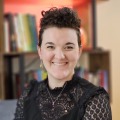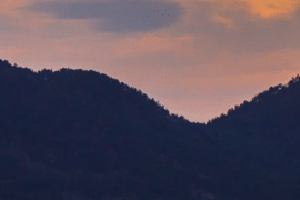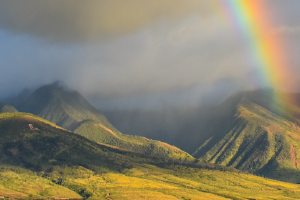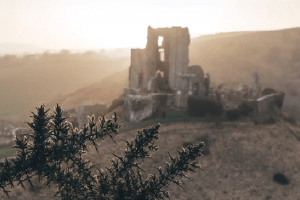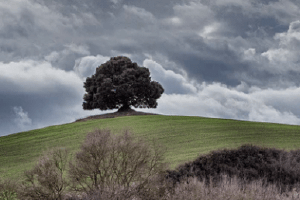Welcome to the Salt and Sage Books Spotlight series! We believe that by honoring each other’s voices, we’re able to turn creativity into community, and change the world through story.
In this spotlight series, we welcome you into our creative community by inviting you to meet our editors and expert readers, and to hear a little of their own story, in their own words.
Erin Olds is the CEO of Salt and Sage Books. She is a former English and French teacher, and has been writing for over fifteen years. She lives in Seattle with her husband, son, and daughter.
What’s your favorite quote?
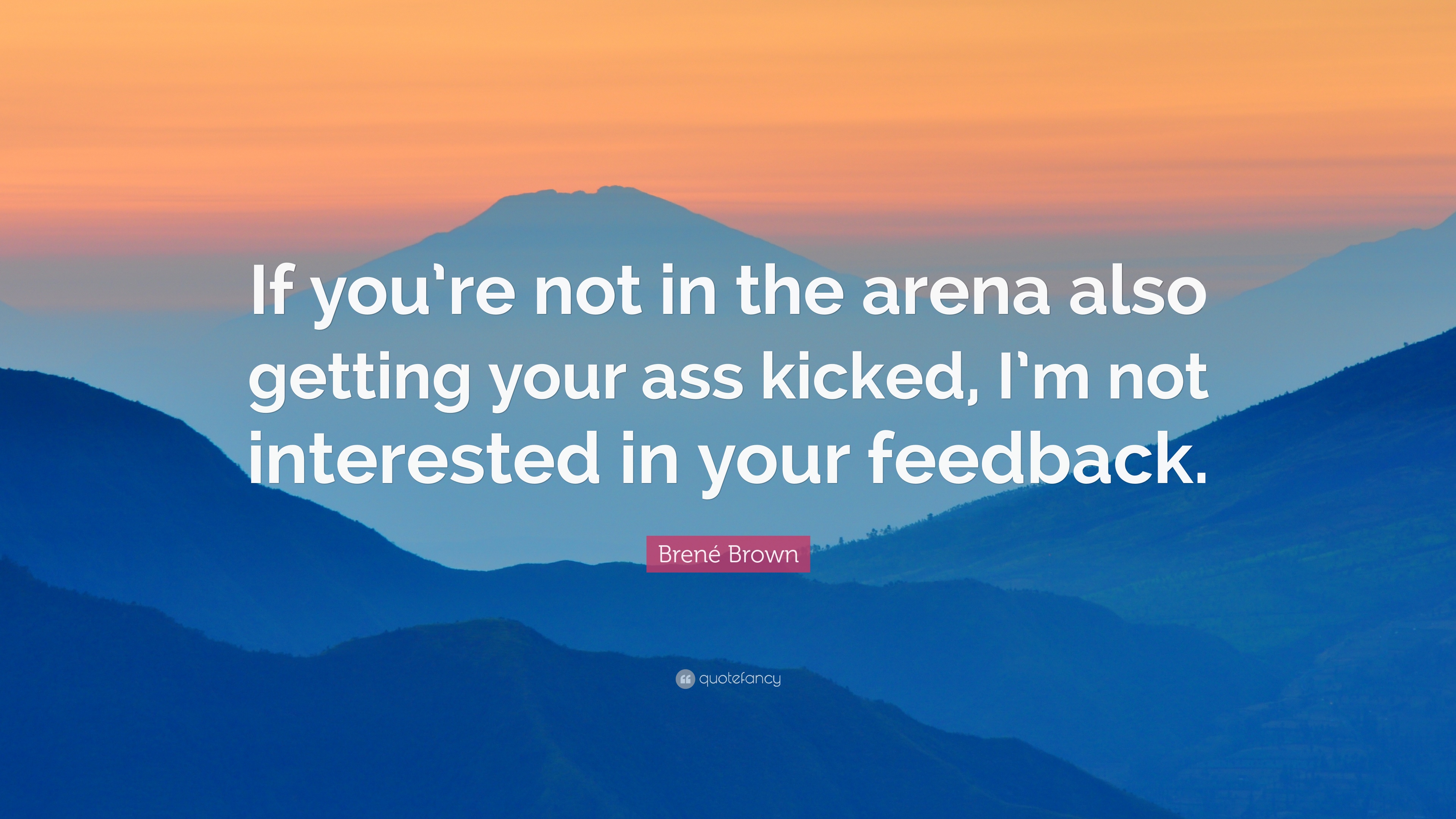
Let’s start with something a little vulnerable: What scares you about writing?
REVISION. I sometimes worry that I don’t know when enough is enough—how do I know when my story is done? That’s difficult.
I need someone outside of me to say, “Stop revising. You’ve nailed it.” I could work over the same piece for years, and never do anything with it. I message my friends things like “I just want to quit working on this, and I don’t know if this is good enough.” There’s a fear of moving on from what I’m comfortable with.
I dread being that author who’s forever “still working on it”. So, I rely on beta readers and critique partners. It’s scary to move forward sometimes…but that’s how I grow.
What is your favorite resource for revising and editing?
My critique group. They’ve given me a perspective and support I didn’t know I was missing. Now that I have it, I can’t imagine writing without it.
When was the last time you were discouraged about writing?
When I finished my most recent draft of my middle-grade novel, I knew it wasn’t ready to be revised, because *I* wasn’t ready to revise it. I didn’t know what to do to fix it. I knew I needed feedback, but I wasn’t ready for the feedback. So I just had to put it away for a few months.
How did you pull through the discouragement? Was there something you read, or did, or told yourself, that helped?
My critique group, Mandy and Sammie, pulled me through. I only saw the flaws, but I lost sight as to whether or not it was “good enough”. They assured me it was.
Then I sent the manuscript to Sachiko. She came back, and told me it was a “deft macaron of a book”.
I felt like, “I can’t fix the smashed croissant I thought it was, but I can fix a deft macaron!”
Tell me about your writing process. Plotter, pantser, Panzier? Where does chocolate come in?
I was born a pantser. It wasn’t until after I’d written and finished my seventh book that I thought, “I should probably figure out how to plot a story.”
My drafts were enormously bloated, and were such a pain to revise. Like, I had this scene where two of my characters were just doing yoga, for eight thousand words. It was kind of ridiculous.
So, now, I’m a loose plotter, with room for pantsing. I have….stretchy pants? They’re stretchy, they’re comfortable, they’re professional looking enough to get away with.
Imagine you’ve got a writing/editing deadline. What do you do?
So, first of all, I turn on Paw Patrol for my kids.
I put on my headphones and my book-specific playlist–which I have for each book that I write–and then I do the Pomodoro method, and I reward myself with a piece of Trader Joe’s chocolate after every 25-minute increment. Typically, after two hours, my kids insist I stop.
But if I have to keep going, I’ll go downstairs, turn off the TV, and make my kids get up and move. I’ll feed them something, take a break, and make sure we all go to the bathroom. Then I turn the TV back on, and get back to it. Sometimes, at that point, my kids are happy to play, and I’ll let them play as long as humanly possible. But as soon as they start bickering, I’ll turn the TV back on.
I just started getting friends to babysit my kids for a few hours at a time if I have a major deadline. But if I’m trying to manage everything on my own? TV is where it’s at.
Tell me where you grew up; where you live now, and where you wish you’d like to live.
I grew up in Utah, Idaho, and Virginia. Right now I live in Seattle—I love living here, because it’s green, it’s rainy, it doesn’t get too hot, and there is so much to explore. And there’s an international airport, so it’s not terribly expensive to travel.
Where I wish I could live? This is a wonderful and terrible question. Would I have to pick just one place for the rest of my life? No? Okay. I would love to live all over the world.
Tell me about one of your favorite books.
The Golden Compass, by Philip Pullman. That was the first book I read that dealt with deeper issues. All the books that I’d read before were fairly tame, but Golden Compass dealt with corruption, and with a child going up against adults and actually succeeding.
I left that book feeling like this child was irreplaceable. She was essential to the story; it couldn’t have happened without her. I read it at a time in my life where I needed that message that my experiences and voice mattered. I was thirteen, and in middle school, and we’d just moved across the country. I didn’t have great friends, and I felt very alone. It was important for me to see that this girl changed the world, just by being herself–and by refusing to take crap from anybody.
When did you know you wanted to be a writer?
Third grade. My teacher, Mrs. Riley, had us write short story for a contest. At the time, I LOVED Nancy Drew, and I sat down to write a story called “Erin and Ashley, and The Mystery of the Missing Pony”.
I wrote the first part of that and never actually finished that (which became a recurring theme in my writing life, haha). My teacher gave me really wonderful feedback, telling me that I had a gift, and that was it! That was all it took. I was convinced I needed to be an author when I grew up.
What made you excited about deciding to be a writer?
I’d always loved books and loved reading, and the idea of being able to do for others what authors had done for me—that was intoxicating. To be able to change how people think, the way authors changed the way I thought? Yeah, that’s amazing.
What does a day in the life look like for you? Tell me about your usual Thursday.
I wake up with my kids (Liam, 5; Tamriel, 3) and feed them breakfast. We get ready for the day, do chores, and then go somewhere—a park, on a hike. We eat a packed lunch—my kids will beg me to eat out, and I’ll tell them no—we come home for the afternoon. The kids get to watch a movie while I have two hours to either write, or work on Salt and Sage stuff. Then once their movie is over, I make dinner. My husband gets home, and we put the kids to bed together, and I go to my writing group. If there’s any time after writing group, we’ll watch an episode of our latest favorite TV show (have you seen Umbrella Academy??).
What is your favorite non-writing, non-reading thing to do?
I really love being outside. I love walks in the forest; I love walks on the beach; I love learning the names of plants, and looking at animals with my kids, and finding seashells. I have an app on my phone for birdwatching with my kids.
And I LOVE traveling. My favorite places I’ve visited are Italy, Hungary, Ireland, and Hong Kong.
If you could be an animal, what would you be?
An octopus. They’re clever, they’ve got no bones, and I want to know what it’s like to have something suction onto you.
What do you wish more people knew about writing?
I wish that people knew how much work it takes to write a book—both mental and emotional work. People will ask if you’re still working on a story, after you’ve been working on it for only three months.
What about writing or editing would you not want to have to say to someone, but that people need to know?
If your plot isn’t solid, no amount of good writing will ever save it.
What do you hope is the next big change or trend in publishing, and what do you want to do to help make that change happen?
I think self-publishing will continue to gain popularity, as I think it’s started to. I hope we will continue seeing an explosion in #ownvoices, and that white authors will, hopefully, lean into research and into listening to sensitivity readers. I hope that it’ll be part of every writer’s process to hire a sensitivity reader. That intentional inclusivity would be the writing industry I would LIKE to see.
I want to be deliberately inclusive, too. So, for me, that means educating myself on the ways people are hurting, and hanging a flag on that. You can be the nicest person on the planet, and still say racist or sexist stuff. If I make mistakes in my own life, or if I realize I’m accidentally hurting people without meaning to, I want to be able to apologize for that, and get to the point of actively paying attention. That’s the point at which I feel like I can make real change.
What drew you to create Salt and Sage Books?
I really wanted to create a place where you could go get an editor where you could be assured of quality, and also knew they would be nice to you.
We writers have all had many types of edits—edits that were helpful, edits from friends that just said “you did great”, and edits that broke your spirit. We’ve all had edits that were not helpful, that really hurt our feelings. At Salt and Sage, we want to guarantee an edit that will be both helpful and uplifting. Because those edits are the amazing ones—they’re the ones that help you level up.
What do you love about leading Salt and Sage Books?
I love that I get to connect authors with editors who will love their piece as much as the author does.
I love being able to look at what the author submits for a consult, and doing sensory magic, and thinking about what I know about both my editors and the story, and matching people up. It’s like finding the correct key for the correct keyhole.
It makes me really happy to connect editors to authors. I love going to authors and being able to say, “I know an editor that will really love your piece”, and going to an editor and saying, “I have this piece you’re going to love.”
If a kid came up to you and told you they wanted to be a writer, what would you tell them?
YAY! Do it! The world needs your voice.

